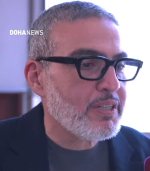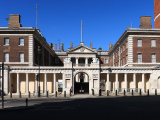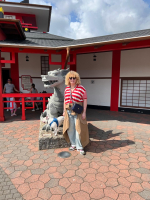
Sir David Attenborough is set to return to the screens next week, with a new five-part documentary series called “Wild Isles”. The new series will mark Attenborough's first landmark series on
British natural history and is expected to be his final time fronting a series filmed on location. Although Attenborough has no plans to retire, he is understood to have stopped travelling internationally. The programme will feature wildlife from the British Isles, with Attenborough himself in a London park, and from orca hunting seal off the Shetlands. The show’s producers said that Attenborough agreed to narrate Wild Isles from the start and was later approached about presenting it. “We felt he had a unique perspective because of his age, on how the British countryside has changed in his lifetime,” said the series producer, Alastair Fothergill, who has been working with Attenborough for 35 years.
Filming for the new series was completed in 2021, and saw Attenborough visiting locations including a hay meadow in Dorset, the island of Skomer in Wales, and Richmond Park, near his home in southwest London. In addition to appearing on screen, Attenborough was heavily involved in the script, which he analysed and improved upon line by line. The series features a range of wildlife, including puffins on Skomer Island, barn owls hunting one million roosting starlings, and red deer and fallow deer rut and fighting grey seals. The best available drones were also used to capture the landscape. The new series is co-produced by the Open University, the RSPB and WWF.
The production team spent 1,631 days filming across 200 shoots – including 71 days filming salmon, 65 days filming geese and 57 days filming tuna. Speaking about the production, Nick Gates, a producer on the series, said that Attenborough’s presence was particularly powerful because he is a “phenomenal barometer of change”. “If you look at the natural history of Britain and Ireland, it has changed enormously over his lifetime and so it’s very powerful when he talks about that.” The British Isles is home to 50% of the world’s bluebells, 85% of the world’s chalk streams and 60% of the world’s northern gannet population.
The programme is expected to be a “springboard for change” and to show the public the global importance of Britain and Ireland to nature. With such easy accessibility – compared with filming on location internationally – one of the biggest challenges of filming was learning when to stop, said Gates. “Because many of these stories were on our doorstep, within a day’s drive, we knew we could keep going back and improving those sequences. And so the bar just kept being raised. Each time we’d go away on location we’d think ‘OK, what would we do to improve it?’” The show is expected to be a celebration of the beauty and diversity of the British Isles, and a reminder of the need to preserve and protect it. Photo by John Cairns, Wikimedia commons.









































